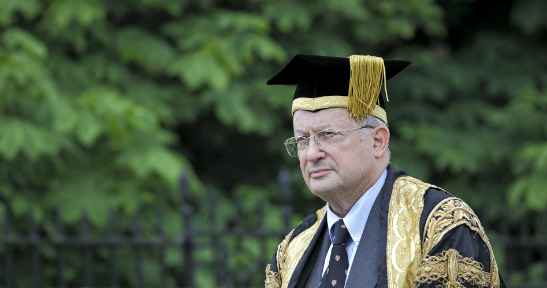
Duties
The Chancellor is the Head of the University but, in common with other UK institutions, does not exercise executive authority. A member of the Council ex officio, the Chancellor may chair if present, but in
normal circumstances it is the Vice-Chancellor who does so, and with the other
members exercises this authority.
The
Chancellor is elected for life by the Senate and has the power to call and preside over Congregations
of the Regent House, with the conferment of honorary degrees being the most obvious
ceremonial duty in recent times.
Ceremony is only one aspect of the Chancellor’s involvement, however. By Statute, the
Chancellor also has powers 'to see that all officers of the University duly perform
their duties' and to determine certain contested or unresolved matters on
appeal. The statutes of a number of Colleges make the Chancellor their Visitor,
ex officio.
The Chancellor, currently Lord Sainsbury of Turville, visits Cambridge on average twice a term, carrying out a programme of visits which over the course of a year will cover a representative sample of Faculties and Departments of the University; new buildings or facilities are often opened by the Chancellor.
The current postholder
The current Chancellor, Lord Sainsbury of Turville, is the 108th
Chancellor in the University’s history. He was elected in October 2011 in
succession to HRH The Duke of Edinburgh, who stepped down from the
Chancellorship in his 90th year having served since election in
1976. Lord Sainsbury is an alumnus and Honorary Fellow of King’s College.
Lord Sainsbury is a former Minister of Science and Innovation
(1998–2006). He is the Settlor of the Gatsby Foundation which he founded in
1967, giving philanthropic support to causes including plant science,
neuroscience, economic development in Africa, the arts, public policy and
science education.